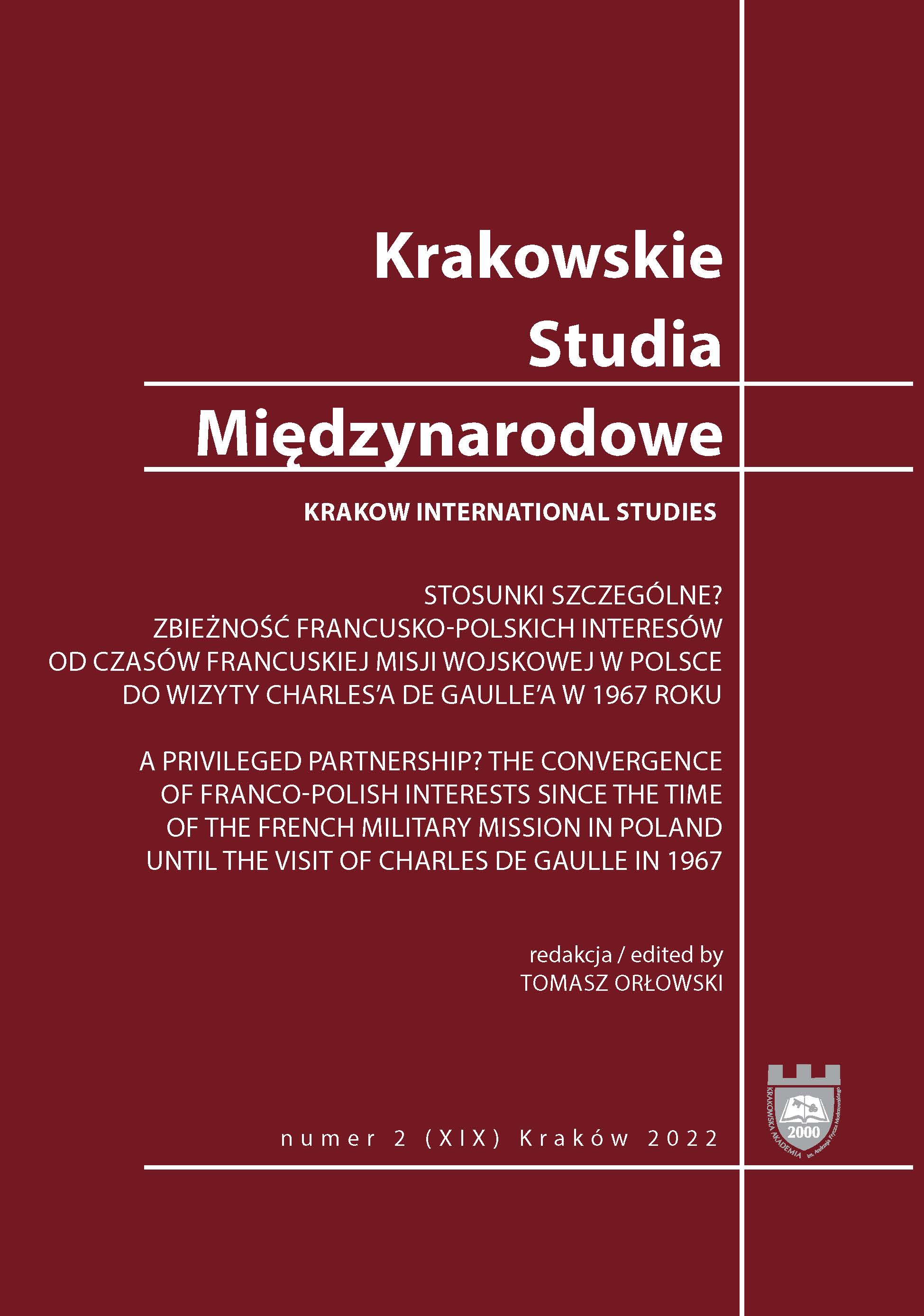La question polonaise au cours de la Grande Guerre et pendant la Conférence de la Paix – perspective française
The Polish case during the Great War and at the Peace Conference – the French point of view
Author(s): Tomasz SchrammSubject(s): Politics / Political Sciences, Politics, History, Military history, Recent History (1900 till today), Interwar Period (1920 - 1939)
Published by: Oficyna Wydawnicza AFM Uniwersytetu Andrzeja Frycza Modrzewskiego w Krakowie
Keywords: WWI; French foreign policy (1914–1921); Polish political thought; the Polish question in WWI; Mitteleuropa; the Polish National Committee (1917–1919); Roman Dmowski; Józef Piłsudski; the Treaty of Ver
Summary/Abstract: The Polish question did not arouse much interest in France after the Congress of Vienna, and its importance decreased after the Franco-Prussian War. Both political camps fighting for independence during the First World War based their strategies on cooperation with Russia, which soon proved futile (Dmowski), or on armed action on the side of Austria-Hungary (Piłsudski). France, on the other hand, saw Polish independence not accepted by Russia as a threat at the beginning of the war, and its autonomy within the Empire as the best solution. Its interest in an independent Poland as a bulwark against Germany began in 1917 with the manifesto of the Polish National Committee. Towards the end of the war, the national interests of France and Poland, for it was these and not feelings that determined policy, began to converge. Support for Poland at the peace conference was linked to the desire to weaken Germany. However, this must be qualified, because a detailed analysis shows that in the matter of the membership of Danzig and Upper Silesia, France supported the cautious and less favorable British position.
Journal: Krakowskie Studia Międzynarodowe
- Issue Year: XIX/2022
- Issue No: 2
- Page Range: 39-55
- Page Count: 17
- Language: French

